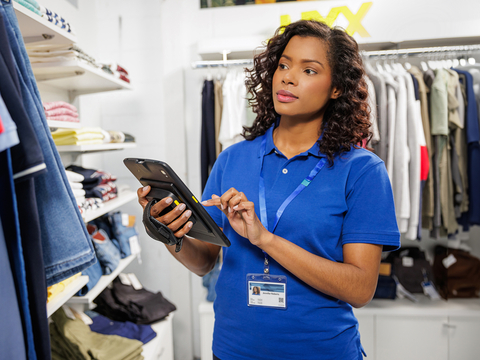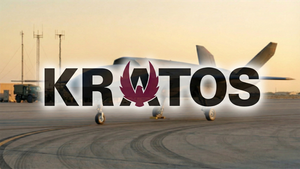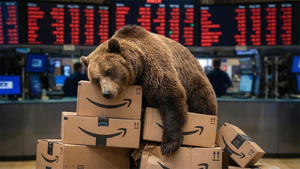Zebra Study also shows seven in 10 retailers pressured to improve returns efficiency as 82% of shoppers prefer retailers offering easy returns
Zebra Technologies Corporation (NASDAQ: ZBRA), a leading digital solution provider enabling businesses to intelligently connect data, assets, and people, today announced the findings of its 16th Annual Global Shopper Study which confirmed retailers are feeling the omnichannel squeeze, particularly with managing online returns and reducing shrink caused by theft, fraud and other contributing factors.
This press release features multimedia. View the full release here: https://www.businesswire.com/news/home/20231025121664/en/

Zebra’s 2023 Global Shopper Study unveils valuable insights from shoppers, associates and decision-makers, offering a new perspective on the evolving retail landscape. (Photo: Business Wire)
Eight in 10 retailers agree minimizing fraud/shrink is a significant challenge (82%), and the ability to forecast demand is important to their organization (86%). According to the National Retail Federation (NRF), retailers lost $112 billion due to shrink in 2022, up from nearly $94 billion in 2021. The Zebra study indicates 36% of retailers believe better analytics on shrink could help drive profitability. Many retailers expect to deploy loss prevention analytics (49%) and demand planning and forecasting (54%) by 2026.
While omnichannel shopping causes challenges for retailers, most shoppers prefer options. Eight in 10 favor a blend of online and in-store shopping, and 75% choose to shop with online retailers that have a brick-and-mortar location. As omnichannel shopping continues to grow, the volume of returns increases along with it. Seven in 10 retailers say the pressure is mounting to improve the efficiency and expense of managing online orders, returns, and the fulfillment process. Six in 10 retailers say they are upgrading their returns management technology by 2026.
Store associates will be pleased with this technology investment. Among associates managing returns from online orders, nearly three-quarters (74%) cite frequent returners as their top challenge. This year, the ease of making returns has moved ahead as a leading reason shoppers choose to shop in stores, outpacing comparison shopping. The increase of returns has impacted retailers globally, growing to $1.8T according to the IHL Group.
“Retailers simply can’t keep doing what they are doing when it comes to returns,” said Matthew Guiste, Global Retail Strategy Lead, Zebra Technologies. “While consumers are demanding the ability to easily return items more frequently, retailers find themselves in a tailspin trying to manage the increased expenses associated with inventory visibility, reverse logistics and a high-level of returns. Despite their best efforts and capital expenditures, the problem has progressed, not improved.”
The returns conundrum also impacts related industries, particularly warehousing. Retailers are tapping into the power of technology to help manage returns with 62% saying they plan to deploy reverse logistics technology by 2026 to better manage fulfillment pressures. Nearly three in 10 (31%) of retailers think charging a fee for online orders from frequent returners could potentially improve the overall profitability of online orders.
Consumers Dialing into Digital Checkouts
Since 2020, the number of shoppers who favor digital payment applications have increased substantially; solutions like ZebraPay align with this trend. Those preferring pay/checkout anywhere in-store almost doubled from 15% to 26%, mobile payments jumped from 33% to 50% and “just walk-out” to avoid a long checkout line doubled from 14% to 30%. Meanwhile, 48% of consumers opt for self-checkouts with 75% saying it helps improve their experience.
Most retailers agree self-checkouts deliver value. In fact, eight in 10 of them agree the investment in self-checkouts is paying off as this technology allows associates to work on higher value tasks and improves the customer experience. However, about 80% of retail decision-makers and associates agree store shrinkage and theft is a major issue with self-checkouts.
Moving Modern Retail Forward
Consumers have high expectations for technology. In fact, 80% of surveyed consumers expect retailers to use the latest technology, and seven in 10 say it improves their shopping experience. In alignment with this trend, over half of retailers plan to deploy handheld mobile computers (56%), scanners (54%), RFID (61%) as well as task (54%) and workforce (56%) management software by 2026.
Store associates will favor this outcome as the study shows eight in 10 of them feel more valued–and view their employer more positively–when they have technology to help them do their work. Today, 77% of associates–up from 67% in 2022–feel shoppers are better connected to information than they are.
“To successfully operate a modern store today, it’s critical retailers invest in technologies that elevate the customer experience, engage associates and optimize inventory,” said Guiste. “Consumers demand the way they browse, acquire, consume, and return merchandise to be seamless wherever they shop. This shift requires retailers to work in new ways with technology to deliver the shopping experiences consumers expect, more profitably.”
KEY REGIONAL FINDINGS
Asia Pacific (APAC)
- More retailers in APAC (87%) believe they need better inventory management tools to improve accuracy and visibility compared to 84% globally.
Latin American
- Over the next 12 months, 64% of Latin American shoppers say they plan to shop in-store and 71% will shop online more over the coming year compared to five in 10 shoppers across both channels in other regions.
Europe
- Retailers in Europe are prioritizing sustainability, with 51% saying it plays an increasing role in their business strategy compared to 45% globally.
North America
- Over three-fourths of retailers (77%) in North America say accepting returns of online orders is a significant challenge, compared to 81% globally.
SURVEY BACKGROUND AND METHODOLOGY
Zebra’s 16th Annual Global Shopper Study surveyed over 4,200 shoppers, store associates and retail decision-makers globally to gauge the opinions and expectations on today’s shopper experience, technology usage and fulfillment in June – July 2023 by Azure Knowledge Corporation.
ABOUT ZEBRA TECHNOLOGIES
Zebra (NASDAQ: ZBRA) helps organizations monitor, anticipate, and accelerate workflows by empowering their frontline and ensuring that everyone and everything is visible, connected and fully optimized. Our award-winning portfolio spans software to innovations in robotics, machine vision, automation and digital decisioning, all backed by a +50-year legacy in scanning, track-and-trace and mobile computing solutions. With an ecosystem of 10,000 partners across more than 100 countries, Zebra’s customers include over 80% of the Fortune 500. Newsweek recently recognized Zebra as one of America’s Most Loved Workplaces and Greatest Workplaces for Diversity, and we are on Fast Company’s list of the Best Workplaces for Innovators. Learn more at www.zebra.com or sign up for news alerts. Follow Zebra’s Your Edge blog, LinkedIn, Twitter and Facebook, and check out our Story Hub: Zebra Perspectives.
ZEBRA and the stylized Zebra head are trademarks of Zebra Technologies Corp., registered in many jurisdictions worldwide. All other trademarks are the property of their respective owners. ©2023 Zebra Technologies Corp. and/or its affiliates.
View source version on businesswire.com: https://www.businesswire.com/news/home/20231025121664/en/
Contacts
Media Contact:
Michael Gilhooly
Zebra Technologies
+1-708-814-5281
michael.gilhooly@zebra.com
Industry Analyst Contact:
Kasia Fahmy
Zebra Technologies
+1-224-306-8654
k.fahmy@zebra.com





